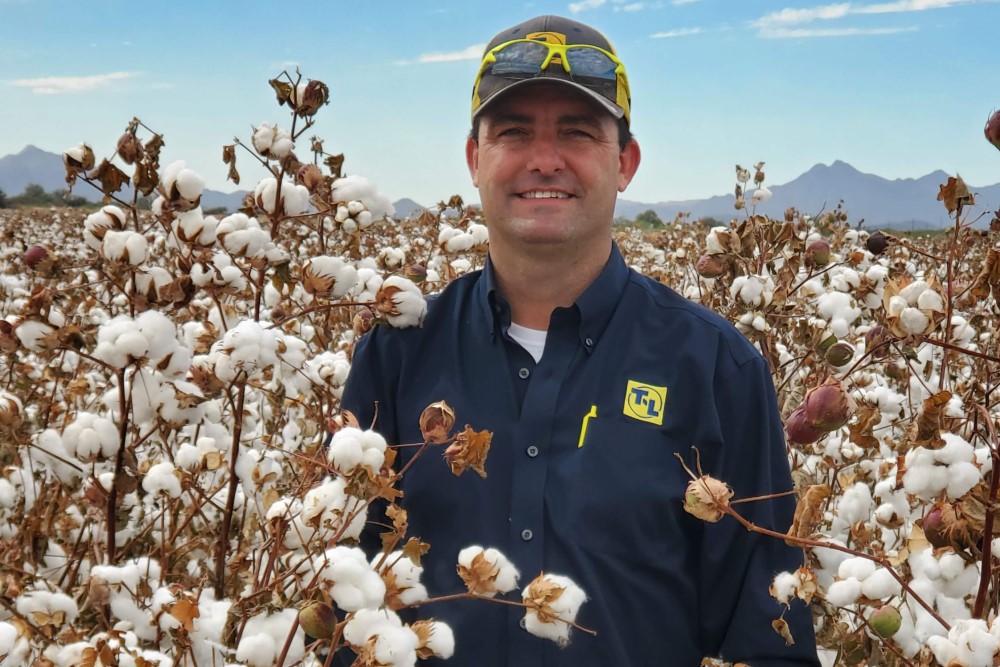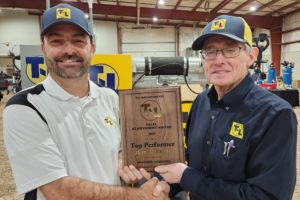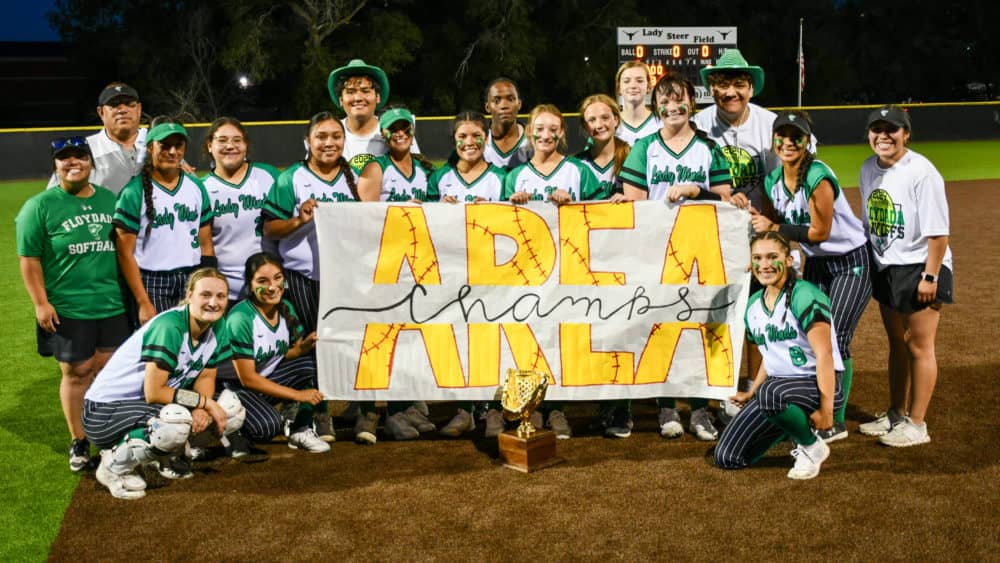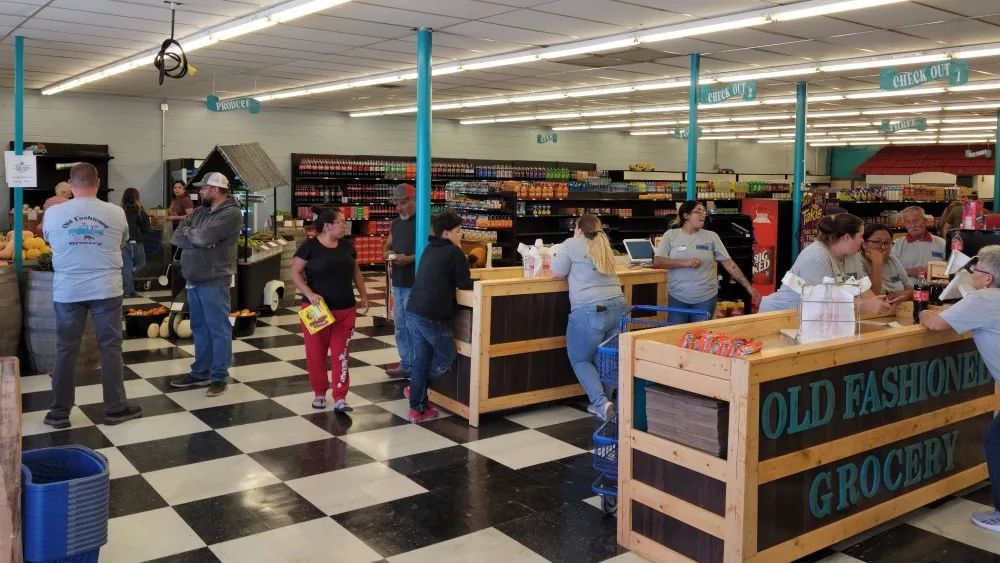
Floyd County native Jaron Everett on a farm near Marana AZ after installing the first pivot in that valley. He's standing in the field's first cotton crop (Courtesy photo)
TULARE, CA – “Being raised on a farm, hard work was never something that was ever thought about; it was just part of that way of life. There was always something that needed to be done, and at the end of the day, it was done.”
That quote makes sense for someone growing up near Dougherty (Texas) on a fifth-generation cotton/milo/wheat farm. Then again, it is also part of why this irrigation territory manager is working in a large section of the United States, including southern Nebraska, Kansas, Colorado, Utah, Arizona & southeastern California.
Growing up “in West Texas, you understand, at an early age, just how important water is to life in general. It’s a circle, always coming back to sustainable life on earth,” explains Jaron Everett, a 1999 graduate of Motley County High School. “Water conservation was an early topic growing up (and) I remember my Grandpa G.W Smith talking about the days of big irrigation wells in the county and ditch water for miles and miles, but I never got to witness this as the aquifer was drying up by then (the 80s and 90s).”
Today, the Floyd County native makes his home in Preston, Kansas, with his wife Lauren and five of six children: Sinjin, Austyn, Macey, Tana, and G.W. His oldest child Ryley and her husband reside near the Lakeview community.
Though the South Plains region of Texas knows the importance of managing water, Everett says only some do, which is why he recently attended World Ag Expo.
“The World Ag Expo has always been interesting for T-L Irrigation,” he explains. “California & the western regions, in general, are 50 +/- years behind on water conservation techniques compared to the rest of the U.S. (and) the inquiries for water conservation practices has increased drastically over the past year due to the Colorado River basin drought for the past several years.”
But can anything be done this late in the game?
“The Ogallala Aquifer is a testament to what needs to be done in the Colorado River Basins,” he adds. “My attendance at the Expo was to educate the farmer/rancher/land owner on center pivot/ linear move systems. Also, to help producers understand the systems, we offer in correlation to water conservation and, at the same time, keep crop yields at a profitable level with 30-40% less water usage with mechanized irrigation systems vs. flood irrigation practices, which are most common in many regions of California/Arizona.”

On the homefront, Everett says his dad, Rob, and brother Logan continue to farm in Floyd County and offers a gentle reminder to keep your eyes and mind open for new ideas.
“Our neighbor, James Hinton, had center pivot irrigation systems clear back in the late 70s, and I remember many farmers commenting on how ‘that isn’t going to work; well, it did, and James was way ahead of the curve in water conservation techniques for decades before anyone else.”
Even though work is essential, he’s also learning to take some time off.
“I am sure I inherited my work-aholic-ism from my dad. I describe it as an incurable disease (although) my wife is working to help me understand fun.”
“The most fun is spending time with my children; they bring me lots of joy. I always wanted a large family, and at one time, I never thought it would happen,” Everett concludes “what a blessing.”



